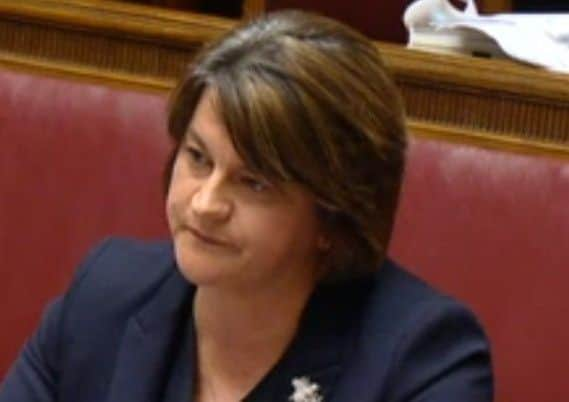RHI Inquiry: Arlene Foster admits mistakes under intense scrutiny
and live on Freeview channel 276
Concluding her evidence to the public inquiry into the RHI scandal, the DUP leader was asked about a series of allegations against her former special advisor (Spad), Andrew Crawford, some of which he disputes but others of which are backed up by conclusive documentary evidence.
Although she said that she believes Dr Crawford’s assertion that he did not act to delay cost controls, she accepted that there are questions about what he was doing in 2015.
Advertisement
Hide AdAdvertisement
Hide AdMrs Foster also accepted that the DUP had broken the law in appointing its powerful Spads – but claimed that other parties had also broken the rules in allocating the lucrative taxpayer-funded posts.


And the DUP leader also expressed regret about her decision to keep Jonathan Bell as enterprise minister even though she believed him to be entirely unsuitable for the role.
She said she did so because an election was just a few months away – suggesting that she put the DUP’s electoral interests ahead of putting the most capable person in charge of an important department.
Mrs Foster said that with an Assembly election just three months away – despite her “belief that he wasn’t a suitable candidate for the post” – she kept him in post because removing him could have jeopardised his DUP seat in Strangford, and she was warned that he would go “rogue” if he was sacked as a minister.
Advertisement
Hide AdAdvertisement
Hide AdMrs Foster also accepted that a joint decision by Martin McGuinness and herself in February 2016 to extend the scheme by two weeks had led to a potentially huge further cost to taxpayers and had been done without any detailed assessment of how much such a move would cost. But she said that at that time “everybody seemed to be outraged by the fact that the scheme was closing” and they therefore “had to balance all of those things in the mix as well”.
During her evidence yesterday, Mrs Foster was much clearer about many of the areas being put to her and – in contrast to her initial days of evidence to the inquiry – she responded far less frequently with answers such as “I cannot recall”.
She also said that she accepted that she was “accountable” for her special advisor Andrew Crawford’s conduct – although she stressed that she should not be held “responsible” for it, making the analogy that if Dr Crawford was guilty of a criminal act she could not reasonably be held to be responsible for his actions.
When asked about how Dr Crawford forwarded confidential ministerial submissions – which warned that cost controls were looming – to relatives who were either on the RHI scheme or thinking of joining it, Mrs Foster said: “If an individual acts outside what they should be doing ... then they’ve stepped outside of the rules and have broken those rules.”
Advertisement
Hide AdAdvertisement
Hide AdAt another point, she said that all the DUP Spads “were people who had third-level education, and who had an ability to work within the system. I am not sure that that can be said about every other special advisor”.